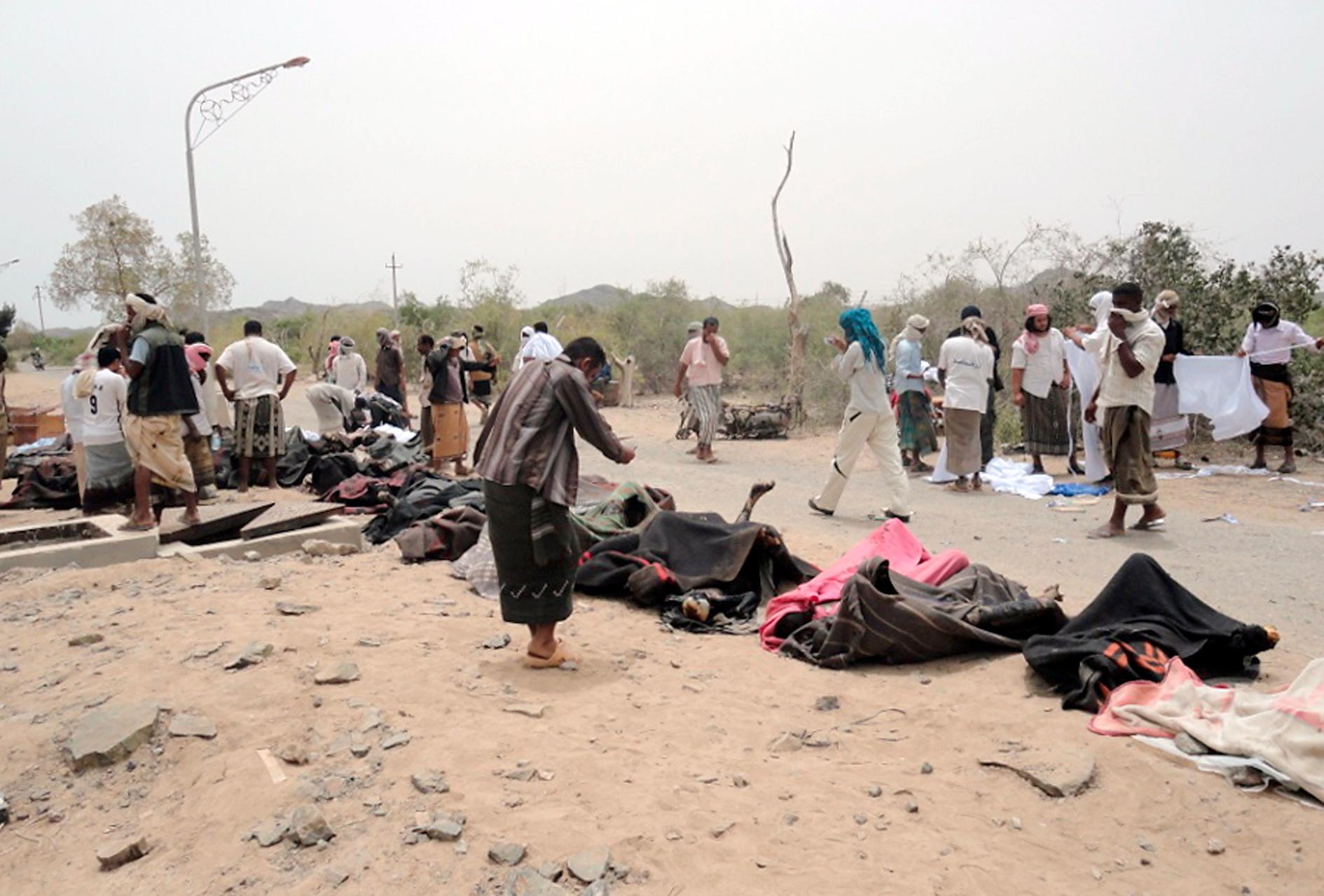Yemeni president and opposition blame each other for violence (VIDEO)
Yemenis lined up bodies after a massive blast killed up to 150 people at an ammunition plant in southern Yemen looted by Al Qaeda on March 28, 2011, as tracts of the south slip out of Sanaa’s control in the thick of an anti-regime revolt. A security official said the explosion came as dozens of residents were inside the factory helping themselves to whatever ammunition was left after March 27’s raid by suspected Al Qaeda fighters.
Embattled Yemeni President Ali Abdullah Saleh on Tuesday hit back at opponents who blamed him indirectly for a weapons factory blast a day earlier that killed over 100 people in the southern Abyan province.
In remarks published on Tuesday by state news agency Saba, Saleh said: "I tell those who appear in the media asking others to leave, that it is up to them to go."
Protesters and opposition figures have blamed Saleh for ongoing violence — intensified after a March 18 massacre of more than 40 people outside Sanaa University by regime loyalists, which drew widespread international condemnation and a string of regime defections — that has raised U.S. fears of chaos that could benefit militants.
The main coalition of opposition groups has directly blamed Saleh for the presence of militants, including Al Qaeda, in Abyan province where the blast occurred, according to Reuters.
"We condemn this ugly crime and accuse the president and his people of involvement with Al Qaeda and armed groups to whom government institutions have been handed over in Abyan. The chaos was planned in advance," it said in a statement, adding: "Saleh's continuation in power is a danger to Yemen, its people and international interests."
Al Arabiya TV, meanwhile, said the death toll from the factory blast in Jaar — which occurred after residents broke in to steal ammunition a day after clashes between Islamist militants and the army — could rise to about 150.
Abyan residents told Reuters that security forces had in recent days deserted Jaar, while the governors of Jawf and Saada provinces in the north have also left, perhaps fearing confrontations with anti-government sympathizers. The governor of the central Yemeni province of Maarib was stabbed earlier this month while trying to disperse a protest.
Before the anti-government protests began, Saleh, a U.S. ally in the fight against al Qaeda, was struggling to contain a secessionist movement in southern Yemen and a resurgent Al Qaeda.
Saleh on Tuesday accused "Al Qaeda, the Huthis [Shiite Zaidi rebels of north Yemen], separatists" in the south and the parliamentary opposition of ganging up against his regime at the expense of the country's stability and security.
He accused his parliamentary opposition of wanting to "seize power through the blood of youths," according to Agence France-Presse
Also, in comments late on Monday, Saleh reportedly renewed calls for "those wanting power to head to the polls."
Saleh has offered to step down by the end of 2011, but his ruling party has insisted that he remain in power until a scheduled presidential election in 2013.
— Freya Petersen
Every day, reporters and producers at The World are hard at work bringing you human-centered news from across the globe. But we can’t do it without you. We need your support to ensure we can continue this work for another year.
Make a gift today, and you’ll help us unlock a matching gift of $67,000!
